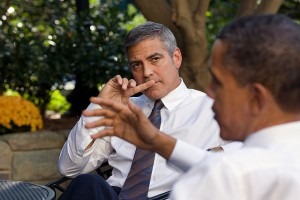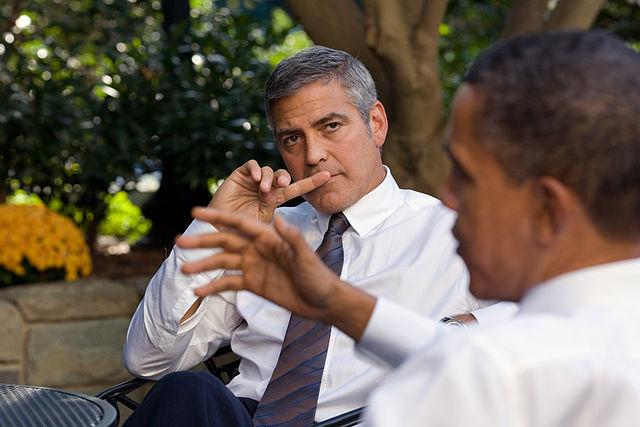
An overview of the story of need with links to news articles, editorials, press releases and blog posts from around the nation and the world:
Front-Page Worthy
- INDIA: Although the fate of the U.S. Affordable [Health] Care Act affects just about every American in one way or another, the most pivotal Supreme Court hearings in the world at the end of March were going to be in New Delhi, not in Washington, D.C. Final arguments for Novartis v. Union of India were scheduled to begin on Wednesday, March 28, before the Indian Supreme Court postponed the case until July. At issue in the case: the patent for a cancer drug made by Swiss-headquartered pharmaceutical company Novartis, and, more indirectly, India’s role as “the pharmacy of the developing world.” Currently, India’s billion-dollar generic drug industry enables economically poor nations to treat people with life-threatening conditions. For example, as The Globe and Mail of Canada noted, Zambia is able to treat hundreds of thousands of people who have the HIV virus with generic Indian anti-retroviral drugs that cost $120 per patient per year. Patented brand-name versions of the drugs cost $12,000 per patient per year. If Novartis wins, other drug companies would likely seek similar patents for their drugs, which could soon jeopardize the flow of generic drugs from India and potentially threaten the availability of affordable, life-sustaining medicine for millions of people.
- UNITED STATES: The survival of the Affordable Care Act seemed uncertain after analysis of the arguments before the Supreme Court at the end of March. Meanwhile, here’s how a woman in Texas and a family in California manage in the interim.
- CHINA: The electronic giant Foxconn, an Apple supplier, responded to a critical investigation of its plants with vows to increase wages and improve working conditions.
- MEXICO & CUBA: The two countries welcomed a papal visit in March. In Mexico, Pope Benedict XVI denounced drug violence and called for people to rely on their faith in the midst of their suffering. In Cuba, the pope called for an alternative to Marxism while maintaining talks with President Raul Castro. The Cuban government arrested at least 70 members of the Ladies in White group, made up of wives and family members of political dissidents, ahead of the pope’s arrival.
- PALESTINE: Hana Shalabi, a Palestinian woman on a hunger strike to protest her administrative detention by the Israeli government, entered her 34th day without food. As of March 21, she was under observation at an Israeli military hospital. The Israeli government believes Shalabi to be a part of the terrorist group Islamic Jihad.
- MALI: The recent military coup could threaten Mali’s regional standing.
- PORTUGAL & SPAIN: Workers in Portugal attempted to organize a general strike to oppose the austerity measures imposed by the government as part of last year’s bailout by the European Union. The government of Spain unveiled billions in cuts the day after nationwide strikes.
- CENTRAL AFRICA: Thanks to a provision in the Dodd-Frank economic reform law “publicly traded companies whose products use certain minerals commonly mined in strife-torn areas of Central Africa to report to shareholders and the S.E.C. whether their mineral supply comes from the Democratic Republic of Congo,” according to an article in the New York Times. The provision affects products as diverse as cellphones, circuit boards, light bulbs and jewelry.
- TIBET: Another Tibetan exile died from self-immolation. According to National Public Radio, at least 30 Tibetans in the last year have set themselves on fire in protest of Chinese rule of Tibet.
- BURMA: Long-time detainee and activist Aung San Suu Kyi campaigned ahead of upcoming April elections, offering a measure of hope to her fellow Burmese.
- SENEGAL: In February, the danger of political turmoil loomed over Senegal due to its recent controversial presidential election. However, this month’s victory of former prime minister Macky Sall over incumbent president Abdoulaye Wade was declared legitimate and concern-free by European observers.
Fighting the Good Fight
- SUDAN PROTESTS: Actor George Clooney was arrested along with his father, Nick, a retired journalist, NAACP president Ben Jealous, four current congressmen, and other activists during a planned protest outside the Sudanese Embassy in Washington, D.C., this month. The Clooneys partnered with John Prendergast of The Enough Project to raise awareness of the Sudanese government’s current, indiscriminate attacks on innocent villagers. They are attempting to monitor Sudanese actions through their Satellite Sentinel Project.
- THE BATTLE AGAINST AIDS: Three “everyday heroes” on the front line of the fight against AIDS.
- UNTIL THEY HAVE FACES: A campaign led by the non-profit initiative Project Revive in Boulder, Colo., produced Until They Have Faces, a colorful and collaborative book that profiles people who are or have been homeless, as well as local volunteers who are working to end homelessness.
- EVERY DAY HEROES: Last month, Dollar General launched a program to honor people who serve their communities, and named Sterling Wilder of Lynchburg, Va., its first “Every Day Hero.” Wilder founded and runs with the Jubilee Family Development Center to provide children and their families with a structured haven away from drugs and violence.
- SYRIA TRACKER: The non-profit tech company Ushahidi has helped create a net-based tool called Syria Tracker to share, document and confirm harm inflicted on Syrian civilians.
- RECYCLING BEDS: Enviro-Recycle is an initiative adopted by a local businessman to keep used beds out of landfills and provide work opportunities for people in need. Does your community have a cheap drop-off center for used beds?
- GANG TRUCE: The Catholic Church in El Salvador brokered a truce between two large street gangs, which have 100,000 members between them. Some speculated over whether the government secretly made concessions to the gangs in exchange for a truce.
Troublespot Alerts
- THE SAHEL: The food crisis in the Sahel region of Africa worsened in March. According to U.N. estimates reported by The Guardian, more than 13 million people are currently at risk of serious food shortages.
- FAMINE IN SUDAN?: The government of Sudan responded to U.S. and world concerns about the potential of famine in South Kordofan and Blue Nile regions by threatening the U.S. diplomatic mission with expulsion.
- ABUSE IN NEW YORK: According to the New York Times, in 2010 charges of abuse outnumbered beds in New York’s facilities for people who are disabled.
Reflections & Reviews
- NEW PREZ: President Barack Obama nominated Dartmouth College president Jim Yong Kim to be the next World Bank president over more likely candidates such as economist Jeffrey Sachs, who campaigned actively for the post. The move raised eye-brows in the aid community where debates rage over the best ways to respond to the world’s many problems. For a taste of some of the differences, read this (tongue-in-cheek?) letter from Sachs’s arch-enemy William Easterly. Questions have already been raised about Kim’s fitness for the post, but a better question might be this — Why does the United States maintain the presidency of the World Bank as its own “fief” and install a friendly European at the head of the bank’s sister institution, the International Monetary Fund? What are the possibilities that a non-American such as Nigeria’s minister of finance Ngozi Okonjo-Iweala could instead be named the next head of the World Bank? And what about more systemic issues related to the bank — as is the temptation in large institutions, is the World Bank sometimes more interested in its own longevity and virtue than in helping the people it professes to care about?
- INTERNATIONAL DAYS: International Water Day brought attention to the very real needs of people around the world for clean, safe drinking water. International Women’s Day shined a spotlight on the progress and contributions of women, while at the same time calling for women’s rights in places and fields where equal rights have yet to become a reality. Here’s how one group of local women reflected on the holiday.
- OCCUPY: What if a different sort of bank were possible?
- LENT: For readers fasting their way toward Easter, consider this post about Henri Nouwen’s The Selfless Way of Christ. In typically Nouwenian fashion the book says a lot in a very few pages.
- KONY 2012: So much has already been said and written about KONY 2012 that we thought we’d just link to it so you can see it for yourself and make your own judgment.
- HUNGER GAMES: The newest movie sensation just hit theaters. Here’s a surprisingly positive review from one (pacifist) blogger.
- OCTOBER BABY: NPR says there is a market for value-laden, Christian films.
Published on EverydayEpics.com
- Us v. Them (Part II) — Commentary on the “sheep” and the “goats” and the source of social ill, as illustrated through the author’s personal experience.
- Ahead of Its Time — The extraordinary true story of Covert, Mich., a pioneer in race relations.
- Watoto Children’s Choir — My family and I got to see the famous Ugandan choir perform at a church led by some friends of ours.
- Us v. Them (Part III) — Commentary on what it feels like to be known as a “foreigner.”
Coming Up
- Commentary: April will feature a guest column about Easter and the story of need.
- Possible Stories: Health care in Colorado, a glimpse of life in a foster family, human dignity and the social service system, what is the “gospel” and what does it mean for our world today?
Feel free to share your thoughts or offer additional links below.


